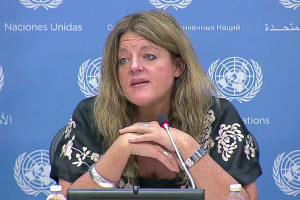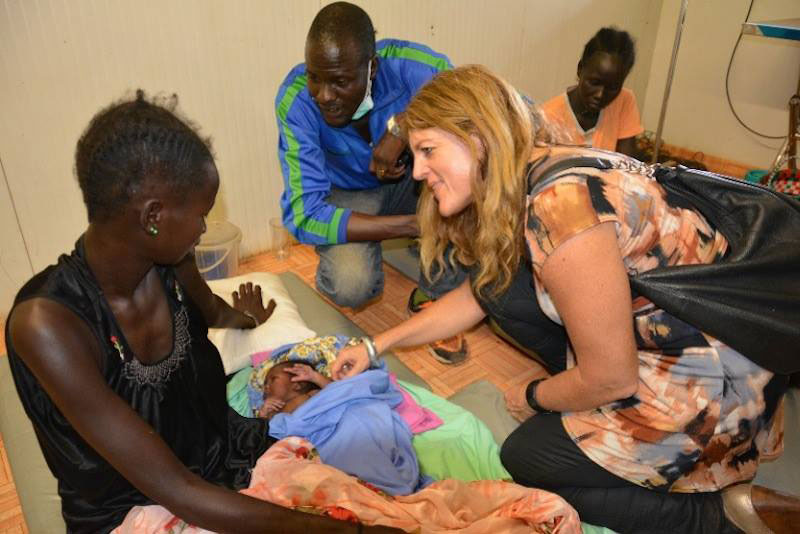The speed, the scale and the scope of what has unfolded in South Sudan during the last six months could not have been predicted, said Hilde Johnson, the UN head in the world’s youngest nation, who spoke at a press conference in New York Monday about her upcoming withdrawal from the leadership of the UN Mission in South Sudan (UNMISS).
At the press conference, Johnson referred to the situation in South Sudan as “bleak” and stressed the need to put the welfare of South Sudanese above all other concerns, as well as to bring to justice those responsible for crimes committed during the conflict.
“Although I knew it would be rocky and difficult and challenging and we would be under significant pressure,” said Johnson, “I did not expect what happened in the last six months – the speed, the scale and the scope of what has unfolded before our eyes.
“Yet, the events took a life of their own, and the took an ethnic turn, and I think that is one of the reasons why we saw [what] we saw,” said Johnson, referring to the ethnic Nuer-Dinka killings that have been reported to characterize a large part of the fighting.

Johnson led an UNMISS that was focussed on building the nation. Since the fighting broke out last December, the UN mission has changed. It is now focussed more on peacekeeping and protecting South Sudanese lives. Johnson said this was “a very different from the mandate I took office on.”
The change was “not something we chose to do,” said Johnson. The UN was obliged to do so in order to save lives, which, Johnson said, had been saved.
The 12,000 UN peacekeepers and other workers who would compose the UN force decided on by UNMISS in January has not yet been realized, but Johnson made another statement that the force would now be possible after the May 27 Intergovernmental Authority on Development (IGAD) meeting.
The country of South Sudan came into being in 2011 by seceeding from Sudan through a near-unanimous UN-backed referendum.
The conflict that has now lasted six months in South Sudan and caused thousands of deaths and over one million displaced began as a political scuffle between the supporters of South Sudan’s president Salva Kiir and supporters of former Vice President Riek Machar, who was removed by Kiir last summer as part of what Kiir has said was a paring down of government.
Currently, humanitarian action in South Sudan is focussed on assisting people through the rainy season, in which the country’s scant roads are often impassable and human resources are scarce.
Humanitarian agencies face the task of assisting 3.8 million South Sudanese–and another 3 million are at risk–according to UNOCHA estimates.
Johnson served as the UN Secretary-General’s Special Representative and head of UNMISS since 2011, when UNMISS was first established. Johnson announced that she was stepping down earlier this year.
By Day Blakely Donaldson
